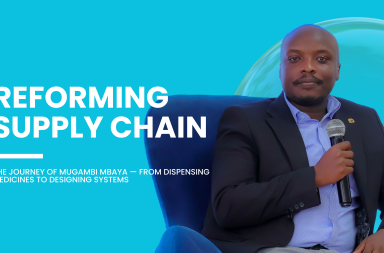Early in your career, it’s easy to spend the day chasing alarms – bleeping phones, last-minute forms, “quick” consults – while the work that actually moves your future forward keeps slipping to tomorrow.
The Eisenhower Matrix is a simple way to take back control. It asks two questions of every task: is it important (does it improve patient outcomes or advance your career), and is it urgent (does it need attention now because of a deadline or consequence).
Your answers place the task in one of four boxes: do now, schedule, delegate, or eliminate.
Read more: The Science of Objection Handling
Do Now – important and urgent.
This is the ward list you’re leading in an hour, the critical lab that changes management, the SHIF or MoH report due at noon, and the stock-out that will disrupt the clinic this afternoon.
Treat this quadrant like a short runway: pick the top three items and land them before midday.
Protect ninety minutes of quiet focus if you can – phone face down, WhatsApp on mute, door figuratively closed.
When everything feels urgent, clarity comes from asking, “What happens if I don’t do this today?”
If the answer is patient risk or institutional non-compliance, it belongs here.
Schedule – important but not urgent.
This is where your future lives: reading new guidelines, drafting a case report, building your CPD plan, refreshing your CV and LinkedIn, applying for that MPH or residency, planning a savings or exam budget, renewing licenses before they become a crisis, even ring-fencing sleep and workouts.
Put these in your calendar before the week fills up.
Two short blocks – say, forty-five minutes on Tuesday and Thursday evenings – will compound faster than you expect.
Treat these appointments with the same respect you give clinic time; rescheduling is allowed, abandoning is not.
Delegate – urgent but not important for you.
Plenty of tasks need doing quickly, but don’t require your level of training. Think printing and labelling, chasing a distributor for a routine delivery, formatting slides for a CME you already structured, or compiling data someone else can extract.
Delegation in Kenyan health settings should be respectful and specific. Explain the outcome, the deadline, and the standard: “Could you extract the hypertensive patient list for last quarter and email it by 3 p.m.? Use the same template as last month.”
Offer support without micromanaging, then follow up and give credit. In clinical work, delegation always includes supervision and clear escalation points.
Eliminate – neither important nor urgent.
This is the endless WhatsApp thread about a meeting that could have been an email, the “quick coffee” that derails your afternoon, the habit of checking your phone every five minutes, and the unstructured meeting with no agenda. Say no kindly and early.
A simple line works: “I’m heads-down on patient work until 2 p.m. – could we send an agenda and decide if this needs a meeting?”
You’re not being difficult; you’re protecting outcomes that matter.
Make it a ritual.
Give the matrix fifteen minutes on Sunday evening or Monday morning. Brain-dump everything you think you need to do, then sort by the two questions.
Transfer “schedule” items into real calendar blocks.
Share “delegate” items with names and deadlines. Cross out what doesn’t deserve your attention.
Each morning, glance at the matrix, confirm your top three “do now” items, and protect one block for “schedule” work before the day runs away from you.
Handle clinical edge cases wisely.
When a task touches patient safety, err toward “do now” or escalate.
If something feels important but you’re unsure about urgency, ask, “What’s the clinical or ethical consequence of waiting?”
If it’s none or negligible, schedule it. If it could compromise care, act or hand off to the right level immediately.
A practical day in Nairobi.
You start at 7:30 a.m. by scanning overnight labs and messages. A potassium result needs an immediate call to the team – straight into “do now.”
You block 8:30–9:45 for the ward round and resist side quests. After rounds, you review your list: a CME slide deck for next week is important but not urgent, so you book a 30-minute slot after lunch to refine the three key graphs.
A pharmacy stock inquiry about a routine item is urgent to someone else but not to you; you ask the clerk to email the distributor and copy you on responses, promising to step in only if it stalls.
The invitation to a midday meeting with no agenda gets a polite request for objectives and a recap instead.
By 4 p.m., the top three “do now” items are closed, the CME is 60% better, and the distributor has confirmed delivery – without you spending half an hour on the phone.
Language that helps.
For scheduling: “This is important, and I’ve set time at 5:30 p.m. today to do it properly.”
For delegating: “Here’s the outcome we need, here’s the template, and here’s the deadline – reach out if you hit a blocker.”
For eliminating: “I’m prioritising patient-facing work right now; could we park this or handle it by email?”
Tools you already have.
You don’t need fancy software. A paper notebook with four headings works. So does a single note on your phone. If you prefer digital, any calendar plus a basic task list will do. The value isn’t in the tool; it’s in the weekly habit and the daily check-in.
The Eisenhower Matrix won’t remove pressure from healthcare, but it will change the shape of your days. Urgent, no longer bullies are important.
Your patients get safer care, your team sees a calmer colleague, and your future stops living in the land of “someday.”
Start small this week: protect one “schedule” block, delegate one urgent task appropriately, and say no once – politely. Then watch what happens to your energy, your outcomes, and your growth.


